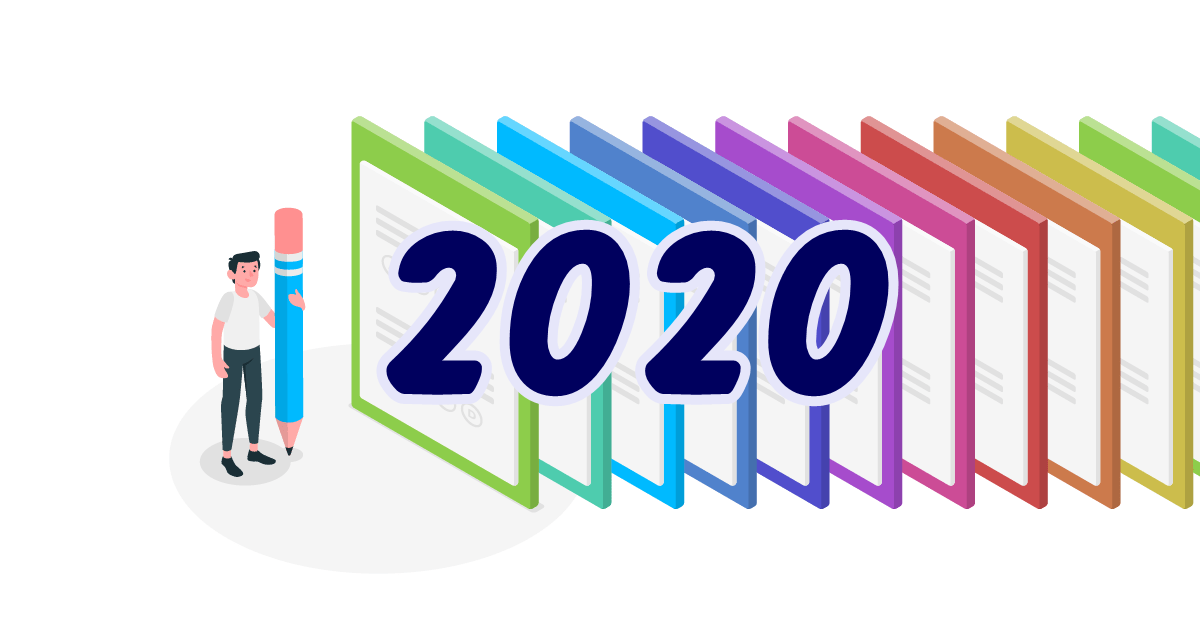Mark the letter A, B, C, or D to indicate the option that best completes each of the following exchanges.
Jenny and Jimmy are talking about university education.Jenny: "I think having a university degree is the only way to succeed in life."Jimmy: "______. There are successful people without a degree."
Question 1: Select the option that best completes the above exchange.
A. That's life
B. That's all right
C. I don't quite agree
D. I can't agree more
Laura is telling Bob about her exam results.Laura:"_________."Bob: "That's great. Congratulations."
Question 2: Select the option that best completes the above exchange.
A. I've passed the exam with an A.
B. I hope I'll pass the exam tomorrow.
C. I'll get the exam results tomorrow.
D. I didn't do well in the exam.
Mark the letter A, B, C or D to indicate the word whose underlined part differs from the other three in pronunciation in each of the following questions.
Question 3:
A. called
B. passed
C. talked
D. washed
Question 4:
A. rise
B. advise
C. raise
D. practise
Mark the letter A, B, C or D to indicate the correct answer to each of the following questions.
Question 5: Because they fly, bats are often mistaken for birds; ______, bats are mammals, not birds.
A. otherwise
B. as if
C. in case
D. however
Question 6: _____ you plan to be walking after dark or not, it is a good idea to take a torch along when you are hiking in rough terrain.
A. provided
B. in case
C. even if
D. whether
Question 7: While ____ the historical building, they had to get some of the missing tiles specially ____
A. to restore - making
B. restore - being made
C. restoring - made
D. being restored - make
Question 8: Some roads in Ho Chi Minh ciy don't provide enough pavements for the pedestrians ________ on safely.
A. to be walking
B. having walked
C. to have walked
D. to walk
Question 9: If you ___ up before the journey, we wouldn't have lost half an hour looking for a petrol station in an unknown city
A. had remembered filling
B. had remembered to fill
C. rememberd to fill
D. remembered filling
Question 10: We can only if we remain united, and so we must support them the moment they_______ on strike.
A. will have gone
B. will go
C. go
D. went
Question 11: I have bought _______ new shirt which matches ______ jacket I bought last week.
A. some - a
B. the - a
C. a - the
D. some - the
Question 12: All the inhabitants in the area have been asked to _____ at home if the storm returns.
A. settle
B. dwell
C. remain
D. occupy
Question 13: This fund has been set up to help protect those ____ of animals that are endangered with complete extinction.
A. kinds
B. species
C. races
D. breeds
Question 14: In most countries, photocopying books without the publisher's permission is clearly a copyright ______.
A. interference
B. interpretation
C. infringement
D. infliction
Question 15: According to some, one way to cut ______ a school system's budget with minimal impact on the rest of the system is to do ______ the twelfth grade.
A. down-away with
B. out-with
C. back-out of
D. off-by
Question 16: The car swerved to avoid a cyclist and just missed hitting a passer-by by____
A. a slight edge
B. a narrow escape
C. a close thing
D. a hair's breadth
Question 17: You'd better not place a bet on Stallion. In my opinion, the horse doesn't _______ a chance of winning the race.
A. win
B. stand
C. rise
D. play
Question 18: Marine reptiles are among the few creatures that are known to have a possible life span greater than _______.
A. man
B. the man's
C. the one of mans
D. that of man
Mark the letter A, B, c or D to indicate the underlined part that needs correction in each of the following questions.
Question 19: Drawing on her own experience in psychology , the writer successfully portrayed a volatile character with dramatic alternatives of mood.
A. in psychology
B. portrayed
C. character
D. dramatic alternatives
Question 20: In England , as early as the twelfth century , young boys enjoyed to play football.
A. In England
B. as early as
C. twelfth century
D. to play
Question 21: Some methods to prevent soil erosion are plowing parallel with the slopes of hills, to plant trees on unproductive land, and rotating crops.
A. Some
B. to prevent
C. to plant
D. rotating
Mark the letter A, B, C, or D to indicate the word(s) CLOSEST in meaning to the underlined word(s) in each of the following questions.
Question 22: It is firmly believed that books are a primary means for disseminating knowledge and information.
A. classifying
B. distributing
C. adopting
D. inventing
Question 23: Moving to a new town brought about many changes in his life.
A. resulted in
B. speeded up
C. resulted from
D. prevented
Mark the letter A, B, C, or D to indicate the word(s) OPPOSITE in meaning to the underlined word(s) in each of the following questions.
Question 24: She has always been honest with me, and I respect her for that.
A. look through
B. look forward to
C. look up to
D. look down on
Question 25: With price increases on most necessities, many people have to tighten their belt for fear of getting into financial difficulties.
A. dress in loose clothes
B. spend money freely
C. save on daily expenses
D. put on tighter belts
Mark the letter A, B, C, or D to indicate the word that differs from the other three in the position of primary stress in each of the following questions.
Question 26:
A. president
B. opponent
C. assistant
D. companion
Question 27:
A. accuse
B. admire
C. enter
D. deny
Mark the letter A, B, C, or D to indicate the sentence that best combines each pair of sentences in the following questions.
Question 28: Laura practised playing the instrument a lot. She could hardly improve her performance.
A. Hardly had Laura practised playing the instrument a lot when she could improve her performance.
B. Had Laura practised playing the instrument a lot, she could have performed much better.
C. However much Laura practised playing the instrument, she could hardly perform any better.
D. As soon as Laura practised playing the instrument a lot, she could perform much better.
Question 29: Lucy paid a visit to the local orphanage. She then decided to donate part of her savings to the children there.
A. Lucy had hardly decided to donate part of her savings to the children when she paid a visit to the local orphanage.
B. It was only when Lucy had decided to donate part of her savings to the children that she paid a visit to the local orphanage.
C. Before she paid a visit to the local orphanage, Lucy had decided to donate part of her savings to the children there.
D. Having paid a visit to the local orphanage, Lucy decided to donate part of her savings to the children there.
Mark the letter A, B, C, or D to indicate the sentence that is closest in meaning to each of the following questions.
Question 30: My friend has stopped eating fast food.
A. My friend sometimes eats fast food.
B. My friend no longer eats fast food.
C. My friend doesn't like eating fast food.
D. My friend has never eaten fast food.
Question 31: "You should take better care of your health," said Tom's mother.
A. Tom's mother promised to take better care of his health.
B. Tom's mother ordered him to take better care of his health.
C. Tom's mother required him to take better care of his health.
D. Tom's mother advised him to take better care of his health.
Question 32: They report that soil pollution has seriously threatened the livelihood of many local farmers.
A. The livelihood of many local farmers was reported to be seriously endangered by soil pollution.
B. It is reported that the livelihood of many local farmers has led to serious soil pollution.
C. Soil pollution is reported to have posed a serious threat to the livelihood of many local farmers.
D. It has been reported that soil pollution has actually put many local farmers' lives at risk.
Read the following passage and mark the letter A, B, C, or D to indicate the correct answer to each of the following questions.
When we meet people for the first time, we often make decisions about them based entirely on how they look.And of course, we too are being judged on our appearance.Undoubtedly, it's what's inside that's important but sometimes we can send out the wrong signals and so get a negative reaction, simply by wearing inappropriate clothing.
When selecting your clothes each day, it is therefore important to think about who you're likely to meet, where you are going to be spending most of your time and what tasks you are likely to perform.Clearly, on a practical level, some outfits will be more appropriate to different sorts of activity and this will dictate your choice to an extent.However, there's no need to abandon your individual taste completely.After all, if you dress to please somebody else's idea of what looks good, you may end up feeling uncomfortable and not quite yourself.
Some colours bring your natural colouring to life and others can give you a washed-out appearance.Try out new ones by all means, but remember that dressing in bright colours when you really like subtle neutral tones or vice versa will make you feel self-conscious and uncomfortable.You know deep down where your own taste boundaries lie.It may be fun to cross these sometimes, but do take care not to go too far all at once.
Reappraising your image isn't selfish because everyone who comes into contact with you will benefit.You'll look better and you'll feel a better person all round.And if in doubt, you only need to read Professor Albert Mehrabian's book Silent Messages, which showed that the impact we make on each other depends 55 percent on how we look and behave, 38 percent on how we speak, and only seven percent on what we actually say.
(Adapted from "Expert First" by Jan Bell and Roger Gower)
Question 33: Which could be the best title for the passage?
A. Making Your Image Work for You
B. Choosing Appropriate Business Suits
C. Making Judgements about People's Appearance
D. Creating a Professional Image
Question 34: According to paragraph 1, people can get a negative reaction from others by ______.
A. wearing inappropriate clothes
B. expressing too strong emotions
C. sending out right signals
D. talking about other people's behaviours
Question 35: The word "outfits" in paragraph 2 mostly means ______.
A. types of gestures
B. sets of equipment
C. sets of clothes
D. types of signals
Question 36: Which of the following is NOT mentioned in paragraph 2 as a factor to be considered when choosing clothes?
A. Places you spend time in
B. Kinds of tasks you perform
C. Other people's views on beauty
D. People you meet
Question 37: The word "others" in paragraph 3 refers to ______.
A. taste boundaries
B. colours
C. means
D. neutral tones
Question 38: The word "Reappraising" in paragraph 4 is closest in meaning to ______.
A. reconsidering
B. reapplying
C. reminding
D. recalling
Question 39: According to Professor Albert Mehrabian, the impact we make on each other depends mainly on ______.
A. how we look and behave
B. what we read
C. what we actually say
D. how we speak
Read the following passage and mark the letter A, B, c, or D to indicate the correct word or phrase that best fits each of the following numbered blanks.
Global warming
Few people now question the reality of global warming and its effects on the world's climate.Many scientists (40) ________ the blame for recent natural disasters on the increase in the world's temperatures and are convinced that, more than ever before, the Earth is at risk from the forces of the wind, rain and sun.(41) ____________ to them, global warming is making extreme weather events, such as hurricanes and droughts, even more (42) ________ and causing sea levels all around the world to rise.
Environmental groups are putting pressure on governments to take action to reduce the amount of carbon dioxide which is given (43) _________ by factories and power plants, thus attacking the problem at its source.They are in favour of more money being spent on research into solar, wind and wave energy devices, which could then replace existing power stations.Some scientists, (44) ________ believe that even if we stopped releasing carbon dioxide and other gases into the atmosphere tomorrow, we would have to wait several hundred years to notice the results.Global warming, it seems, is to stay.
Question 40:
A. give
B. put
C. take
D. have
Question 41:
A. Concerning
B. Regarding
C. Depending
D. According
Question 42:
A. strict
B. severe
C. strong
D. healthy
Question 43:
A. off
B. away
C. up
D. over
Question 44:
A. but
B. although
C. despite
D. however
Read the following passage and mark the letter A, B, C, or D to indicate the correct answer to each of the following questions.
Glaciers are large masses of ice on land that show evidence of past or present movement.They grow by the gradual transformation of snow into glacier ice.A fresh snowfall is a fluffy mass of loosely packed snowflakes, small delicate ice crystals grown in the atmosphere.As the snow ages on the ground for weeks or months, the crystals shrink and become more compact, and the whole mass becomes squeezed together into a more dense form, granular snow.As new snow falls and buries the older snow, the layers of granular snow further compact to form firm, a much denser kind of snow, usually a year or more old, which has little pore space.Further burial and slow cementation―a process by which crystals become bound together in a mosaic of intergrown ice crystals―finally produce solid glacial ice.In this process of recrystallization, the growth of new crystals at the expense of old ones, the percentage of air is reduced from about 90 percent for snowflakes to less than 20 percent for glacier ice.The whole process may take as little as a few years, but more likely ten or twenty years or longer.The snow is usually many meters deep by the time the lower layers are converted into ice.
In cold glaciers those formed in the coldest regions of the Earth, the entire mass of ice is at temperatures below the melting point and no free water exists.In temperate glaciers, the ice is at the melting point at every pressure level within the glacier, and free water is present as small drops or as larger accumulations in tunnels within or beneath the ice.Formation of a glacier is complete when ice has accumulated to a thickness (and thus weight) sufficient to make it move slowly under pressure, in much the same way that solid rock deep within the Earth can change shape without breaking.Once that point is reached, the ice flows downhill, either as a tongue of ice filling a valley or as thick ice cap that flows out in directions from the highest central area where the most snow accumulates.The up down leads to the eventual melting of ice.
Question 45: Which of the following does the passage mainly discuss?
A. The effect of glaciers on climate
B. Damage from glaciers
C. Glacier information
D. The location of glaciers
Question 46: Which of the following will cause density within the glacier to increase?
A. Increased water and air content
B. Pressure from the weight of new snow
C. Long periods of darkness and temperature variations
D. Movement of the glacier
Question 47: The word "bound" is closest in meaning to __________.
A. covered
B. chosen
C. planned
D. held
Question 48: Which of the following will be lost is a glacier form?
A. Air
B. Pressure
C. Weight
D. Rocks
Question 49: According to passage, which of the following is the LEAST amount of time necessary for glacial ice to form?
A. Several months
B. Several years
C. At least fifty years
D. A century
Question 50: The word "converted" is closest in meaning to __________.
A. changed
B. delayed
C. promoted
D. dissolved
Question 51: In temperature glaciers, where is water found?
A. Only near the surface
B. In pools at various depths
C. In a thin layer below the firm
D. In tunnels
Question 52: It can be inferred from the last paragraph that a glacier ___________.
A. can revert to a fluffy mass
B. maintains the same shape throughout the glacial process
C. is too cold to be thoroughly studied
D. can contribute water to lakes, rivers or oceans







